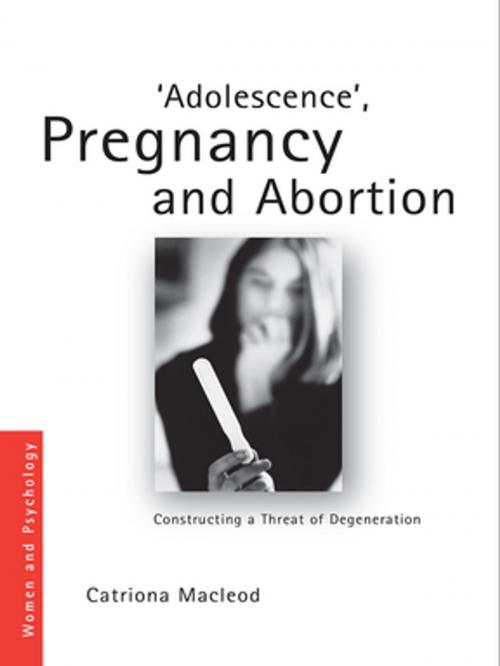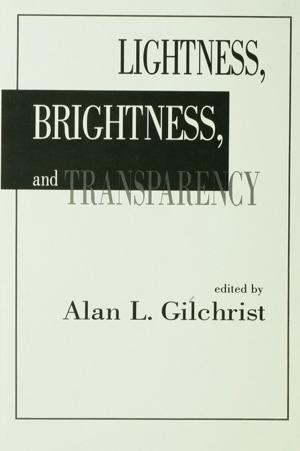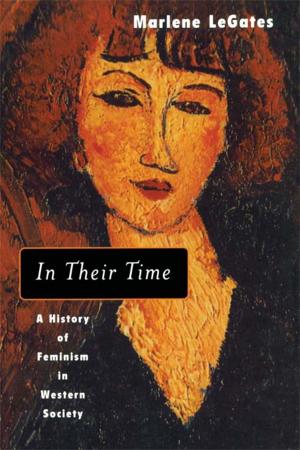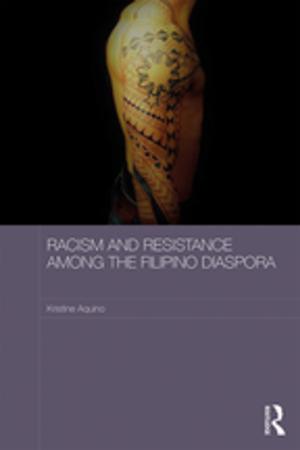'Adolescence', Pregnancy and Abortion
Constructing a Threat of Degeneration
Nonfiction, Health & Well Being, Psychology, Child & Adolescent, Adolescent Psychology, Human Sexuality| Author: | Catriona I. Macleod | ISBN: | 9781136923432 |
| Publisher: | Taylor and Francis | Publication: | July 7, 2010 |
| Imprint: | Routledge | Language: | English |
| Author: | Catriona I. Macleod |
| ISBN: | 9781136923432 |
| Publisher: | Taylor and Francis |
| Publication: | July 7, 2010 |
| Imprint: | Routledge |
| Language: | English |
Winner of the Rhodes University Vice-Chancellor's Book Award 2012!
Winner of the 2011 Distinguished Publication Award of the Association for Women in Psychology!
Why, despite evidence to the contrary, does the narrative of the negative consequences of teenage pregnancy, abortion and childbearing persist? This book argues that the negativity surrounding early reproduction is underpinned by a particular understanding of adolescence. It traces the invention of "adolescence" and the imaginary wall that the notion constructs between young people and adults. Macleod examines the entrenched status of "adolescence" within a colonialist discourse that equates development of the individual with the development of civilisation, and the consequent threat of degeneration that "adolescence" implies.
Many important issues are explored, such as the invention of teenage pregnancy and abortion as a social problem; issues of race, culture and tradition in relation to teenage pregnancy; and health service provider practices, specifically in relation to managing risk. In the final chapter, an argument is made for a shift from the signifier "teenage pregnancy" to "unwanted pregnancy".
Using data gathered from studies worldwide, this book highlights central issues in the global debate concerning teenage pregnancy. It is ideal for academics, and students of health psychology, women’s studies, nursing and sociology, as well as practitioners in the fields of youth and social work, medicine and counselling.
Winner of the Rhodes University Vice-Chancellor's Book Award 2012!
Winner of the 2011 Distinguished Publication Award of the Association for Women in Psychology!
Why, despite evidence to the contrary, does the narrative of the negative consequences of teenage pregnancy, abortion and childbearing persist? This book argues that the negativity surrounding early reproduction is underpinned by a particular understanding of adolescence. It traces the invention of "adolescence" and the imaginary wall that the notion constructs between young people and adults. Macleod examines the entrenched status of "adolescence" within a colonialist discourse that equates development of the individual with the development of civilisation, and the consequent threat of degeneration that "adolescence" implies.
Many important issues are explored, such as the invention of teenage pregnancy and abortion as a social problem; issues of race, culture and tradition in relation to teenage pregnancy; and health service provider practices, specifically in relation to managing risk. In the final chapter, an argument is made for a shift from the signifier "teenage pregnancy" to "unwanted pregnancy".
Using data gathered from studies worldwide, this book highlights central issues in the global debate concerning teenage pregnancy. It is ideal for academics, and students of health psychology, women’s studies, nursing and sociology, as well as practitioners in the fields of youth and social work, medicine and counselling.















